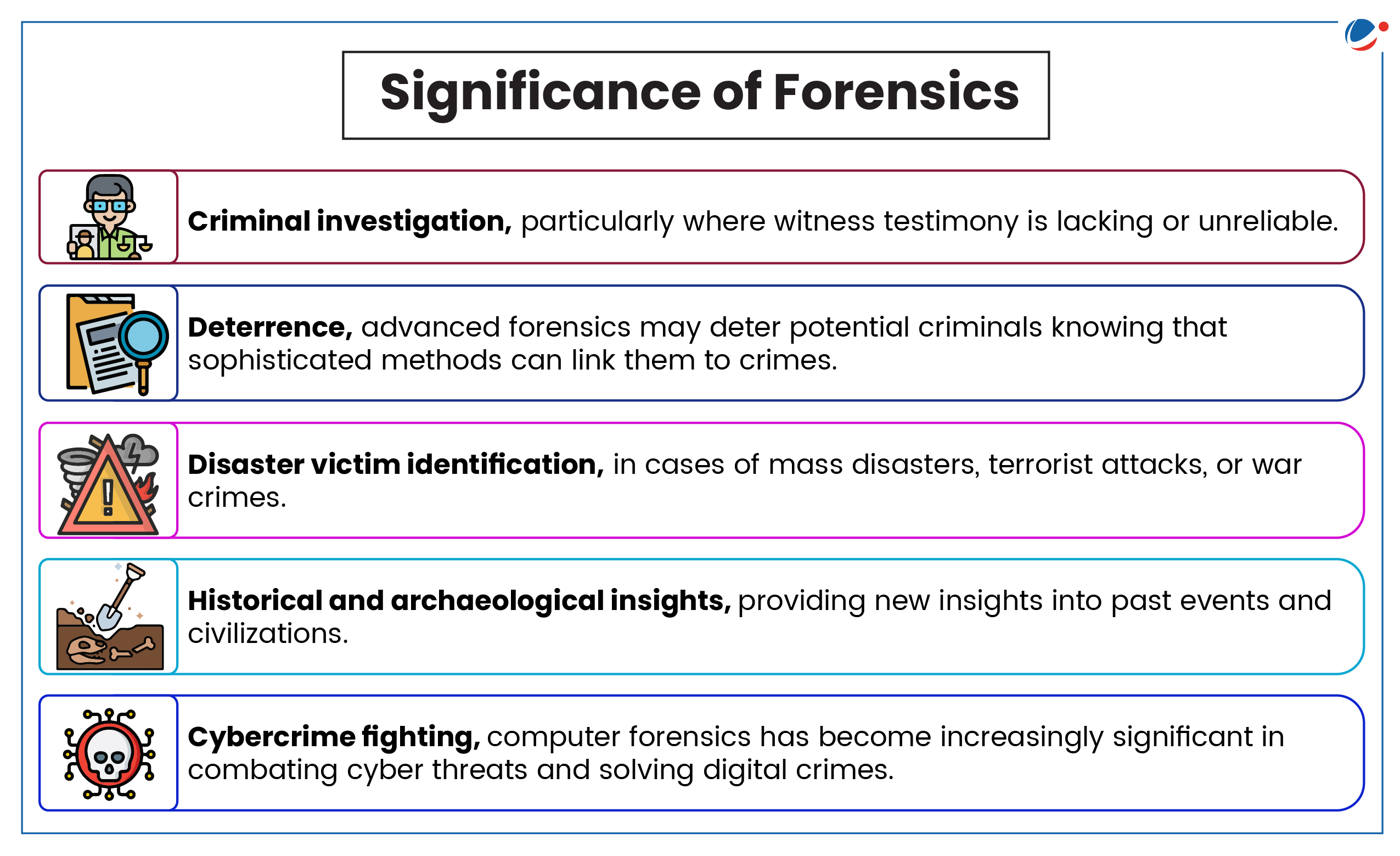Why in the News?
Recently, Union Cabinet approved a Central Sector Scheme 'National Forensic Infrastructure Enhancement Scheme' (NFIES) for the period from 2024-25 to 2028-29.
More on News
- The scheme was approved in the context of expected increase in the workload of forensic science laboratories as Bharatiya Sakshya Adhiniyam, 2023 mandates forensic investigation for offences involving punishment of 7 years or more.
- Components approved under NFIES include:
- Establishment of Campuses of National Forensic Sciences University (NFSU).
- Establishment of Central Forensic Science Laboratories.
- Enhancement of existing infrastructure of NFSU-Delhi.
- Financial outlay of the Scheme will be provisioned by the Union Ministry of Home Affairs from its own budget.
 About Forensics
|
Challenges of Forensics in India
- Infrastructure and resources: Limited number of forensic laboratories and they are often under-resourced and overburdened, leading to significant backlogs in case processing.
- e.g., ~40% shortage of staff in forensic labs across India. (BPRD)
- Budget: Inadequate budgetary allocations for modernizing state police forces, including forensic capabilities.
- Quality and standardization: Lack of standardized procedures and protocols across different forensic laboratories, result in inconsistencies in forensic results.
- Legal and institutional: Challenges related to admissibility and reliability of forensic evidence in courts due to issues like contamination, improper handling, etc.
- Bureaucratic hurdles and lack of effective interagency coordination often leads to inefficiencies and miscommunication.
Way Forward
- Recommendations by Malimath Committee (2003)
- Institutional: Establish a mechanism for coordination amongst investigators, forensic experts and prosecutors at the State and District level for effective investigations.
- Strengthen Forensic Medico Legal Services with adequate training facilities at the State/Central level for the experts doing medico legal work.
- Training and capacity building: An year long induction training programme for newly recruited Prosecutors and Judges, a part of which should be with the police, forensic laboratories, courts and prisons.
- UGC should consider creating the departments of Forensic Science in at least all the major universities. Later, Forensic Sciences could be introduced as subjects at the school level.
- Institutional: Establish a mechanism for coordination amongst investigators, forensic experts and prosecutors at the State and District level for effective investigations.
- Others
- Cybercrime investigation: Expand Indian Cyber Crime Coordination Centre (I4C) initiative with a focus on training more cybercrime investigators and establishing more cyber forensic labs.
- Public-Private Partnerships: Encourage collaborations between enforcement agencies and private forensic labs to expand capabilities and reduce backlogs.
- International collaborations: Strengthen ties with international forensic institutions for knowledge exchange and transfer of technology in digital forensics and emerging fields.



